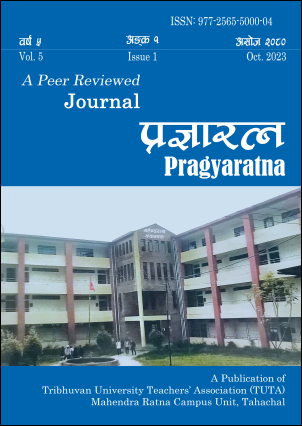Affective Mediation of Mother Tongue in Grade 9 ELT Classes in Kathmandu
DOI:
https://doi.org/10.3126/pragyaratna.v5i1.59285Keywords:
Lived experience, affective mediation, use of mother tongue, phenomenology, target languageAbstract
The use of mother tongue (MT) in a target language (TL) class has become a contentious issue for a long time. This paper examines the use of students’ MT in TL classes, focusing on Grade 9 English language teaching (ELT) in community schools of Kathmandu. Community school English teachers’ experiences of using students’ MT for affective mediation were explored through written ‘lived-experience descriptions’ (LEDs) and phenomenological interviews with three purposively selected teachers. Using ATLAS.ti, the collected information was analyzed from a sociocultural viewpoint, emphasizing the affective mediational function of MT in second language (L2) learning. The study reveals how teachers use students’ MT for counseling, attention-grabbing, fostering interest, and making classroom activities enjoyable. The pedagogical implication is that incorporating students' mother tongue for counseling, attention-grabbing, fostering interest, and creating enjoyable classroom activities, particularly when students share a common mother tongue with their teacher and show less interest in learning English, has significant potential for inspiring and guiding students effectively.




